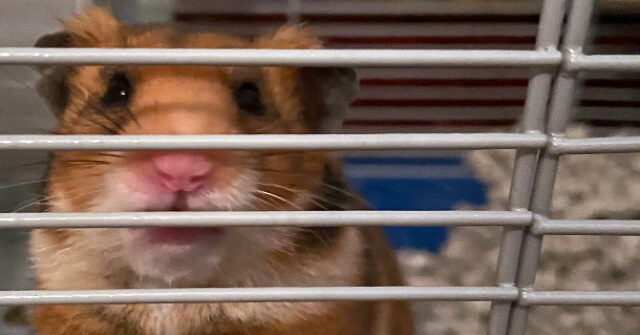

This year’s annual Festivus report from Sen. Rand Paul’s (R-KY) highlights billions in government waste, including wasteful expenditures at the hands of the National Institutes of Health (NIH), which spent millions of taxpayer dollars on watching hamsters fight on steroids and millions more on campaigns encouraging individuals in other countries to wear shoes.
Paul’s 2022 Festivus report features $482,276,543,907 in government waste.
“As always, the path to fiscal responsibility is often a lonely journey, but as I’ve done in years past, I will continue my fight against government waste this holiday season. So before we get to the Feats of Strength, it’s time for my Airing of (spending) Grievances!” Paul wrote in the report.
Six of the highlights in the report feature millions in waste at the hands of the NIH. One of the most well-known grievances involves the $2.3 million it spent on a project involving injecting six-month-old beagle puppies with cocaine. The taxpayer watchdog group White Coat Waste Project helped blow the lid off this project, finding that the puppies were forced to wear a jacket which injected the animal with drugs. This went on repeatedly “for months.”
“Readers may recall in our 2018 Festivus Report, I updated everyone on a NIH project spending $874,503 to study the sex habits of Japanese quails on cocaine. What’s up with your government’s obsession with getting animals high?” Paul asked.
The report also found that the NIH has awarded over $3 million to Northeastern University to “watch steroid-injected hamsters fight to study whether current drugs for aggressive youth suppress steroid-induced aggression.”
That is not the only animal-related absurdity, either. The NIH also have over $1.1 million to the University of Concepcion in Chile “to study the influence of glycine receptors on alcohol consumption….by training mice to get drunk.”
According to the report, the study literally involved injecting mice with alcohol and observing their behaviors and reactions.
“Researchers hoped the study would be ‘a novel opportunity’ to treat alcohol use disorders in humans,” the report reads.
The NIH also awarded $519,828 between 2018 and 2019 to the University of Illinois at Chicago as part of a project attempting to “emulate the violence of racism by agitating mice”:
— Rand Paul (@RandPaul) December 23, 2022
The NIH also gave $187,500 in taxpayer dollars to Kent State University to verify that children love their pets.
Further, the NIH has dropped over $2.1 million over the years to “encourage rural Ethiopians to wear shoes.”
Per the report:
Between Fiscal Years 2010 – 2014, The National Institutes of Health (NIH) granted the National Human Genome Research Institute $2,134,835110 over the course of 5 years in an effort to encourage rural Ethiopians to wear shoes.
The grant funded two studies in which researchers held focus groups and interviews with residents of Ethiopian villages to discuss the importance of wearing shoes to prevent foot podoconiosis, a skin disease from prolonged exposure to red clay soils found in many African nations. One of the studies found that while shoe-wearing norms are “changing,” many people still are unable to afford shoes and refrain from buying their children shoes until they reach a certain age.111 So, the Federal government is trying to convince foreign citizens to buy something they can’t afford to begin with? And it took $2.1 million to hold focus groups?
The full Festivus report can be found here.





